Know About Lava Tower Kilimanjaro
Lava Tower Kilimanjaro stands as a remarkable geological formation, positioned at about 15,100 feet (4,600 meters) on the journey of Mount Kilimanjaro Climbing.
Originating from a volcanic eruption on Kilimanjaro, this unique tower came to life when molten lava solidified, resulting in the striking structure present today.
The nearby landscape, marked by ancient lava trails, reflects the formidable power of nature, offering a glimpse into the mountain's volcanic past.
How the Lava Tower Kilimanjaro Was Formed?
Approximately 150,000 years ago, Mount Kilimanjaro witnessed a remarkable geological phenomenon. When the mighty mountain still functioned as a triple volcano, a massive volcanic eruption paved the way for the formation of the Lava Tower Kilimanjaro. This was the event:
- Molten lava aggressively surged upwards, finding its way to where the Lava Tower Mount Kilimanjaro proudly stands today.
- Upon reaching the surface, the lava began to cool and solidify.
- This solidification formed a plug-like structure, acting much like a cork, effectively blocking the escape of any further lava from beneath.
- Interestingly, while such plugs can intensify the explosive potential of active volcanoes, Mount Kilimanjaro is now dormant.
- This means the Lava Tower Kilimanjaro has remained unchanged and inactive for over 150,000 years. It's evidence of the mountain's volcanic history and a monumental sight, reaching about 90m in height.
For many adventurers and enthusiasts undertaking Mount Kilimanjaro Climbing, this tower offers a unique landmark amidst the mountain's diverse terrains, from dense rainforests to barren alpine deserts.
A few years ago, climbers often took a break at the Lava Tower Camp Kilimanjaro beneath the tower, soaking in panoramic views. However, for safety considerations, this practice was ceased.
Vital Tip
At frican Scenic Safaris, we ensure a comprehensive understanding and safe experience of these remarkable features, catering to every need during your Kilimanjaro Climbing Tours. With the proper guidance and preparation, the story of the Lava Tower and its majestic presence can be a highlight of your Kilimanjaro Climb.
Which Route takes you to the Lava Tower?
Reaching the Lava Tower Kilimanjaro is an adventure that requires not just physical strength but also a determined spirit. As climbers undertake this thrilling journey, they transition through varied ecological zones, each reflecting a unique aspect of Kilimanjaro's diverse biodiversity. So, which paths lead you to this iconic landmark?
Key insights about the Karanga Campsite include
- Lemosho Route: Known for its scenic beauty and gradual ascent, it offers climbers a harmonious blend of landscapes and challenges.
- Machame Route: Popularly termed the "Whiskey route," it’s favoured by many for its breathtaking vistas.
- Shira Route: Taking you across the picturesque Shira Plateau, it merges with the Lemosho route further up.
While the direct ascent to the tower isn't as common now, the Lava Tower Camp Kilimanjaro, located at its base, remains an integral stop for trekkers on the Shira, Lemosho, Northern Circuit, and Machame Routes, all leading towards the coveted Uhuru Peak Summit.
Activities at the Lava Tower
The Lava Tower Kilimanjaro is a hub for engaging activities. For those who wish to immerse themselves in the ambience of this geological marvel, various adventures await:
Key facilities include
- Camping. The Lava Tower Camp Kilimanjaro is conveniently located close by, offering trekkers a unique chance to sleep under the stars in the shadow of this iconic tower.
- Hiking. Explore the rugged terrains around the tower, taking in its diverse landscapes.
- Rock Climbing. Challenge yourself by ascending the rocky front near the tower.
- Trekking. Traverse the paths to and from the tower, getting a comprehensive experience of Kilimanjaro’s diverse ecology.
- Picnics. Set up a scenic meal amidst the grandeur of the tower and the expansive vistas of Mount Kilimanjaro.
Our climbing experts prioritize your desires and safety, ensuring you get the most out of every activity during your Mount Kilimanjaro Climbing journey. Experience the tower beyond its visual appeal; dive into activities that make your Kilimanjaro Tours even more memorable.

Quest From The West
January – December 2026
African Scenic Safaris
8 Days Climbing
Travel Style
Scenic Trekking, High-Altitude Adventure & Gradual Acclimatisation
Climb Starts
Moshi, Tanzania
Climb Ends
Moshi, Tanzania
Price On Request
Incl Camps & Accommodations

Orbit Kilimanjaro
January – December 2026
African Scenic Safaris
9 Days Climbing
Travel Style
Scenic Wilderness Trek & Ultimate Acclimatisation
Climb Starts
Moshi, Tanzania
Climb Ends
Moshi, Tanzania
Price On Request
Incl Camps & Accommodations

Without The Whiskey
January – December 2026
African Scenic Safaris
7 Days Climbing
Travel Style
Classic Mountain Trek & High-Altitude Adventure
Climb Starts
Moshi, Tanzania
Climb Ends
Moshi, Tanzania
Price On Request
Incl Camps & Accommodations

Above The African Plains
January – December 2026
African Scenic Safaris
7 Days Climbing
Travel Style
Remote Mountain Trek & Scenic Summit Adventure
Climb Starts
Moshi, Tanzania
Climb Ends
Moshi, Tanzania
Price On Request
Incl Camps & Accommodations

10 Days Lemosho Climbs
January – December 2026
African Scenic Safaris
10 Days Sustainable
Travel Style
Scenic Trekking, High-Altitude Adventure
Climb Starts
Moshi, Tanzania
Climb Ends
Moshi, Tanzania
Price On Request
Incl Camps & Accommodations

Machame Climbs
January – December 2026
African Scenic Safaris
9 Days Sustainable
Travel Style
Classic Mountain Trek & High-Altitude Adventure
Climb Starts
Moshi, Tanzania
Climb Ends
Moshi, Tanzania
Price On Request
Incl Camps & Accommodations
01
/ 06
Best Time to Visit the Lava Tower
If you plan to make the most of your trip to Lava Tower Kilimanjaro, certain times are more optimal than others.
Specifics of the trek include
- Avoid March to June- These months tend to be colder and receive more rainfall, potentially making the journey more challenging.
- Opt for January to Early March & June to October: These months are characterized by warm and dry weather. Clear skies, magnificent views, and optimal sunshine provide an excellent backdrop for your Mount Kilimanjaro Climbing After trekking, rest at the Lava Tower Camp Kilimanjaro is also a pleasant time.
By guiding you on the best Kilimanjaro Climbing Routes and offering tailored advice, we ensure that your visit to the Lava Tower Mount Kilimanjaro is both enjoyable and memorable.
The Lava Tower remains a standout with its history and majestic presence on Kilimanjaro’s trails. So, as you explore Kilimanjaro Climbing Packages, remember to witness the splendour of this natural marvel.
Location of Lava Tower
The Lava Tower Kilimanjaro is prominently positioned, making it a focal point for climbers and enthusiasts alike. But where exactly is this tower located on the expansive terrains of Mount Kilimanjaro?
Details about Karanga Valley include
- The Lava Tower is approximately 4,600 meters, equivalent to about 15,000 ft.
- It graces the western slopes of Kibo, the highest among the three peaks of Mount Kilimanjaro.
- For those opting for the Shira, Machame, Lemosho, or Northern Circuit Kilimanjaro Climbing Routes, the Lava Tower is a significant landmark.
For a more tangible sense of its location, consider this: From the Shira 2 and Shira cave campsites, it's about a 5-hour trek to the tower. Subsequently, the Barranco campsite is three hours away, and the Arrow Glacier campsite is roughly an hour's journey.
Noteworthy Fact About Lava Tower
At African Scenic Safaris, we ensure a comprehensive understanding and safe experience of these remarkable features, catering to every need during your Kilimanjaro Climbing Tours. With the proper guidance and preparation, the story of the Lava Tower and its majestic presence can be a highlight of your Kilimanjaro Climb.
Climb Kilimanjaro With Us
Get ready for a mountain adventure with real advice, smiling guides, and simple help that actually works. We’re with you from start to summit.
Lava Tower to Uhuru Peak: Mapping Your Journey
From the Lava Tower Kilimanjaro to the Uhuru Peak is a voyage marked by captivating terrains and striking camp locations. Here's a brief on what you can expect:
Routes to Lava Tower Camp
This camp can be accessed via Kilimanjaro Climbing Routes. Whether you choose the Northern Circuit Route, approach from the south through the Machame Route, or decide on the Lemosho Route from the west, you'll find each path uniquely enthralling.
Journey to Arrow Glacier Camp
After a restful night at the Lava Tower Camp (4600m), your next destination is the Arrow Glacier Camp, positioned at 4903m. It's advisable to kick off early, preferably before 05:30, to reach the crater rim within four to six hours.
Trek to Uhuru Peak
The trail leading to Uhuru Peak (5895m), the highest point of Kilimanjaro, is well-defined. Once there, an hour or so of trekking unveils the glorious summit. If you plan to camp in the crater, scaling the peak is generally recommended.
Spotting the Furtwängler Glacier
As you inch closer to the Crater Camp (5800m), the majestic Furtwängler Glacier in the Reusch Crater on Kibo accompanies you on your left.
Rise to Resilience and Beyond on Lava Tower Kilimanjaro
The path to Lava Tower Kilimanjaro symbolises the entire Mount Kilimanjaro Climbing journey, highlighting the challenges and victories inherent in such a monumental undertaking.
Lava Tower is more than a magnificent rock formation; it stands as a beacon of human resilience, adventure, and the quest to go beyond.
As trekkers ascend, they're embracing a life-changing experience marked by perseverance and the undeniable splendour of Kilimanjaro.
Explore Kilimanjaro Travel Guide
Find essential topics below to help you plan, prepare, and enjoy your Kilimanjaro travel experience fully.
Frequently Asked Questions
Lava Tower is a distinct geological formation on Mount Kilimanjaro, resulting from a past volcanic eruption. The solidified lava forms a tower-like structure standing at approximately 15,100 feet (4,600 meters).
The Lava Tower is situated on the western slopes of Kibo, the highest of Kilimanjaro's three peaks. It's a landmark on various climbing routes like Lemosho, Machame, and Shira.
Yes, there's a campsite known as Lava Tower Camp nearby where trekkers can set up camp and rest during their ascent.
No, while Lava Tower is significant, the highest point on Kilimanjaro is Uhuru Peak, standing at 5,895 meters (19,341 ft).
At Lava Tower, trekkers often engage in activities like camping, hiking, rock climbing, and taking in the panoramic views of Kilimanjaro's landscape.
The Best Time to Visit Lava Tower is during the warmer, drier months of January to early March and June to October. These periods offer clear skies and favourable climbing conditions.
Climbing the Lava Tower itself can be challenging. It's essential to be well-prepared, acclimatized, and, if possible, accompanied by experienced guides or climbers. Safety precautions should always be a priority.
Depending on your chosen route and pace, it can take multiple days of trekking to reach Lava Tower, as it's typically included in multi-day Kilimanjaro climbing expeditions
Simbo Natai, founder of African Scenic Safaris, crafts sustainable, meaningful Tanzanian journeys rooted in his deep local knowledge and passion.
Director






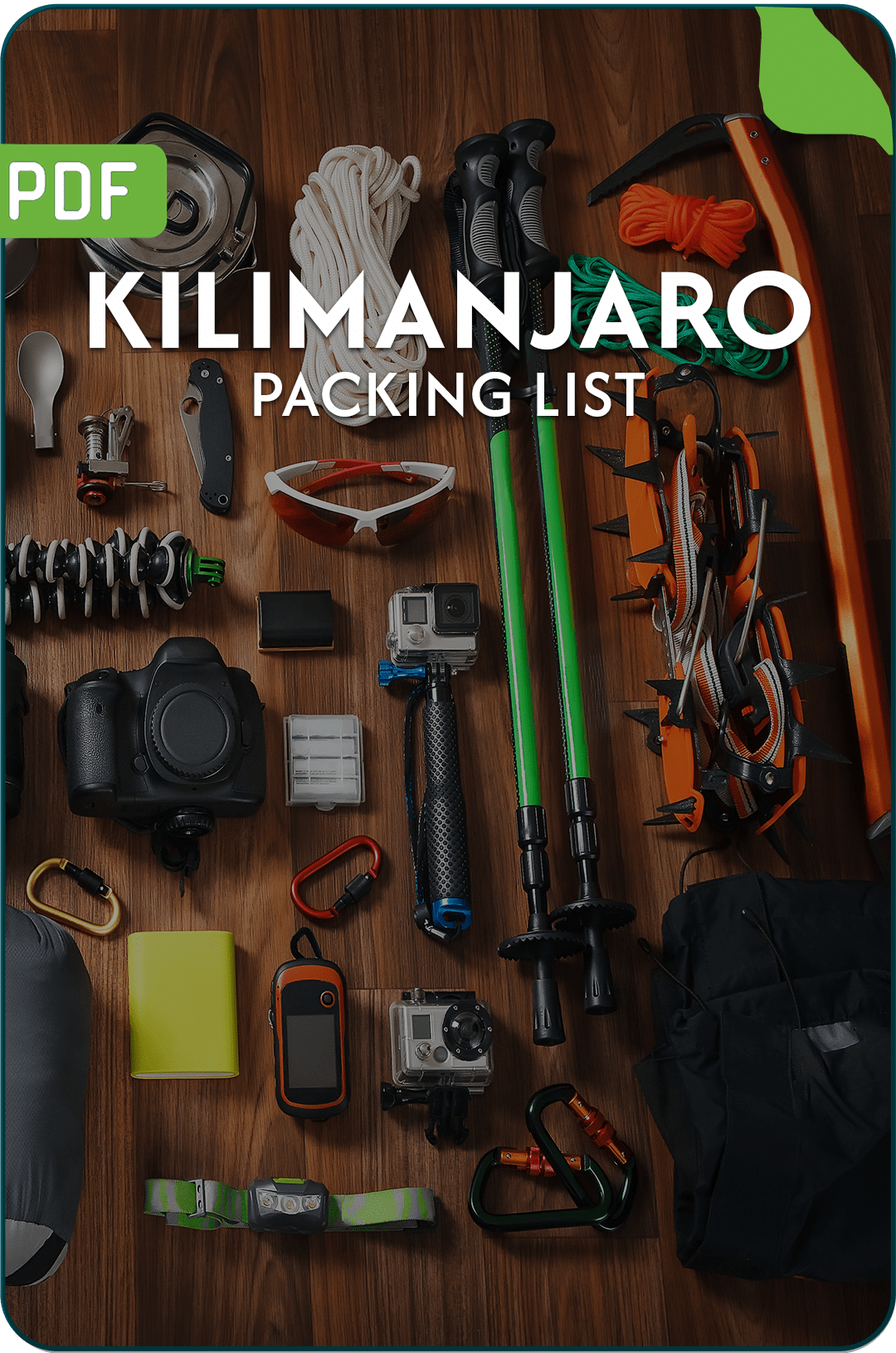


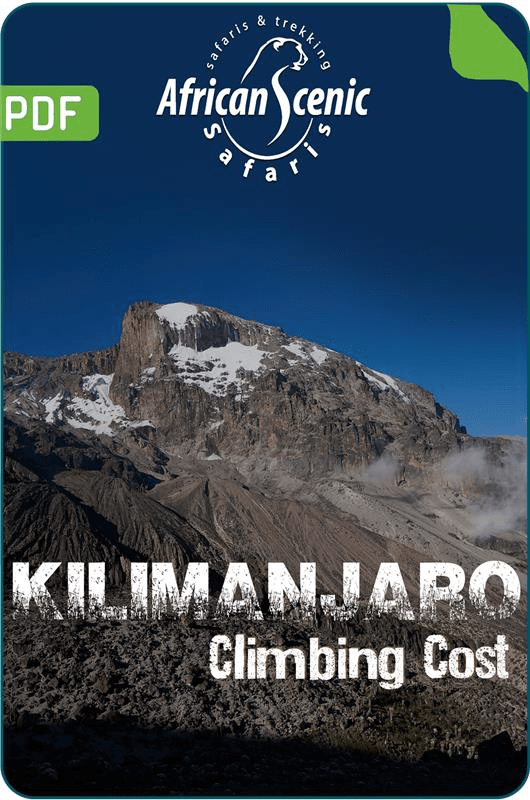





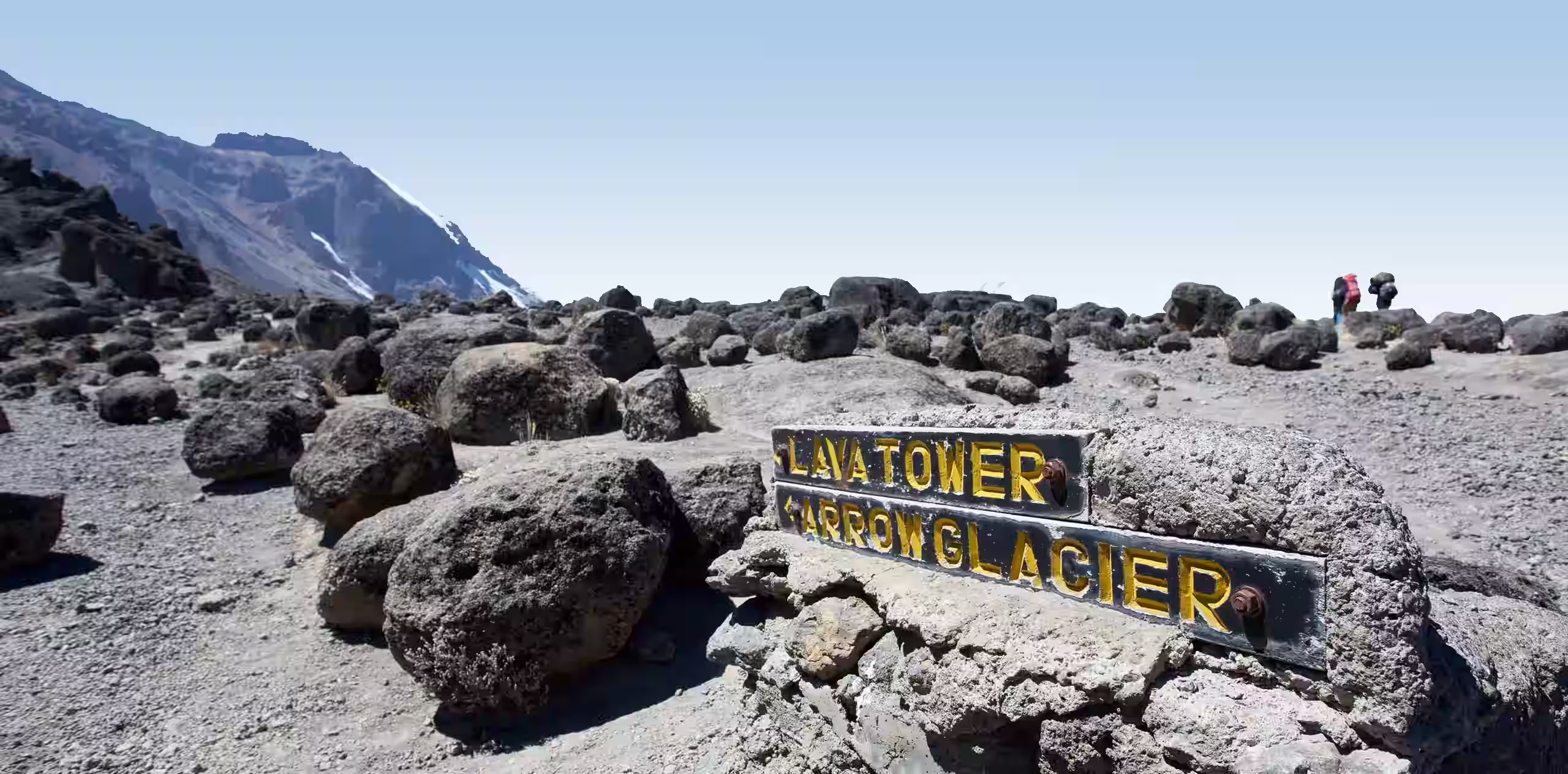
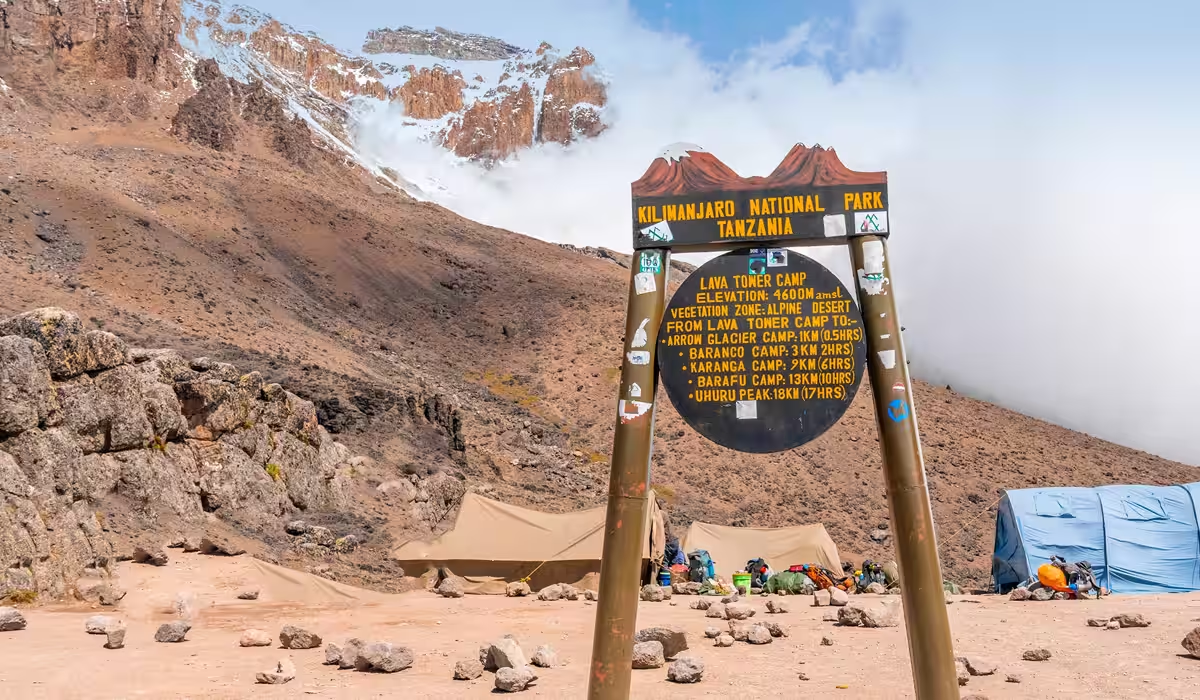
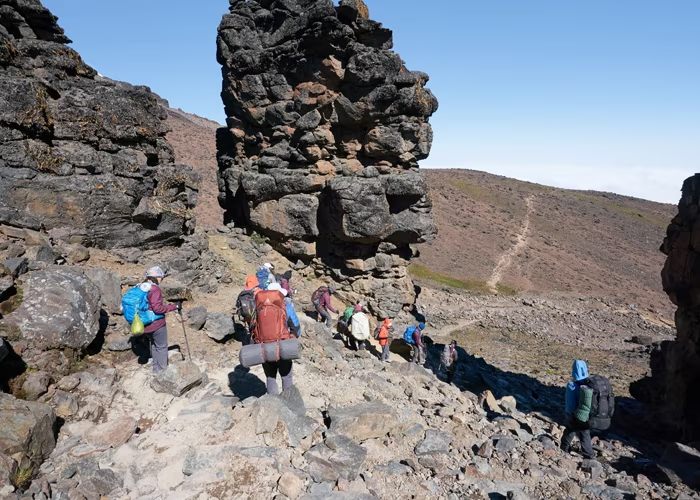
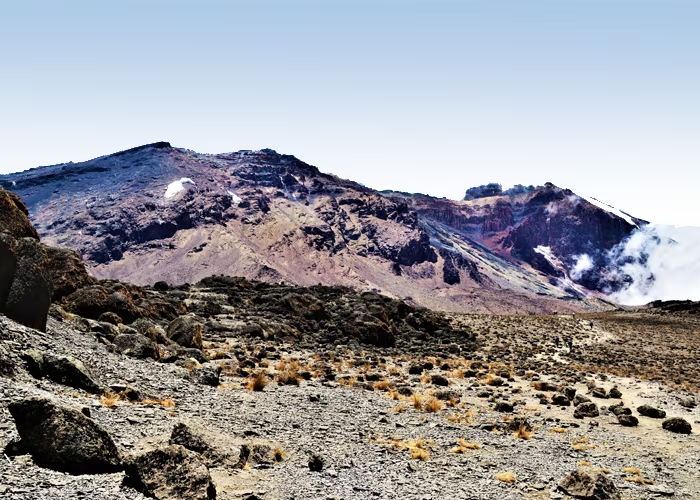
 Quest From The West
Quest From The West
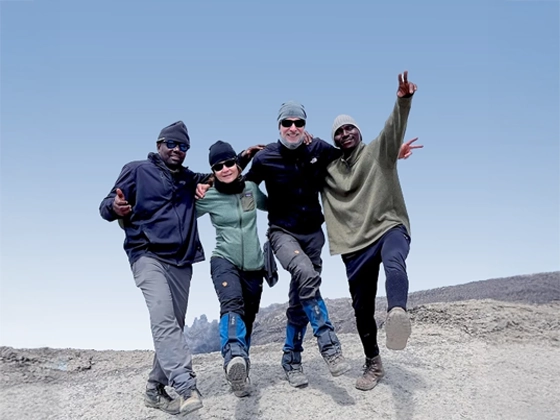
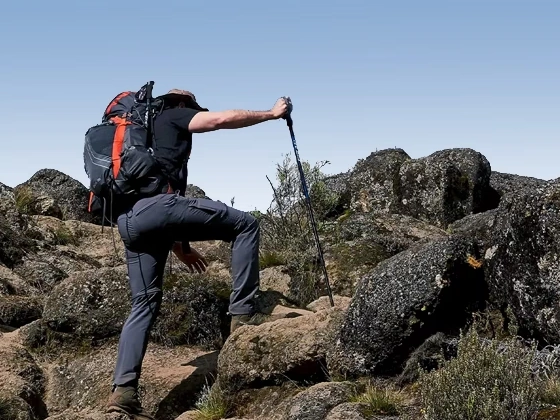
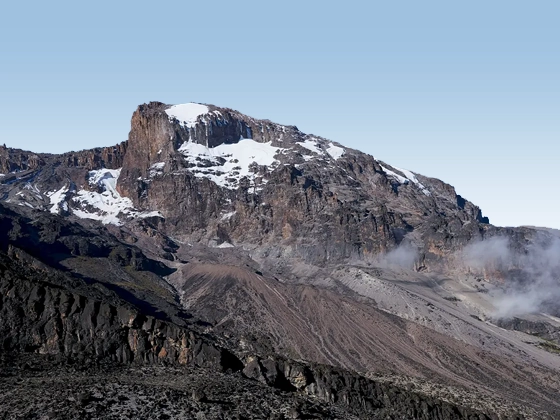
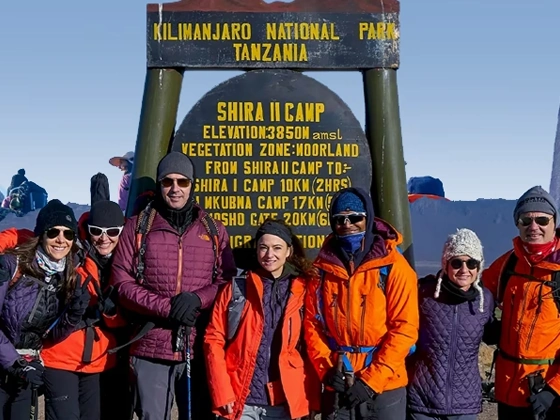
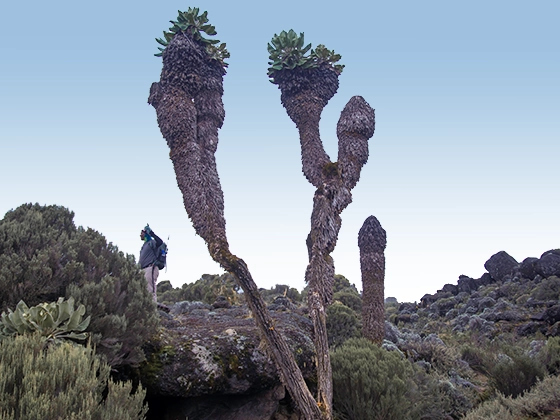
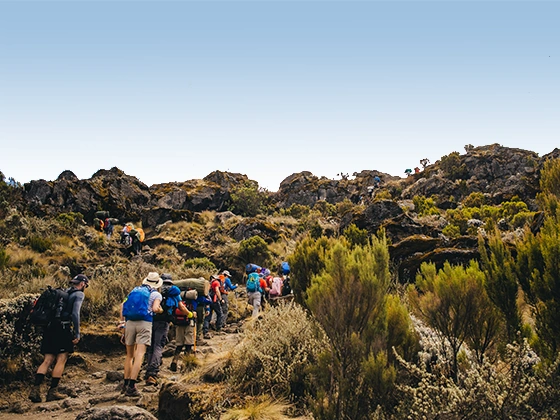



 African Scenic Safaris #1 on TripAdvisor
African Scenic Safaris #1 on TripAdvisor 




